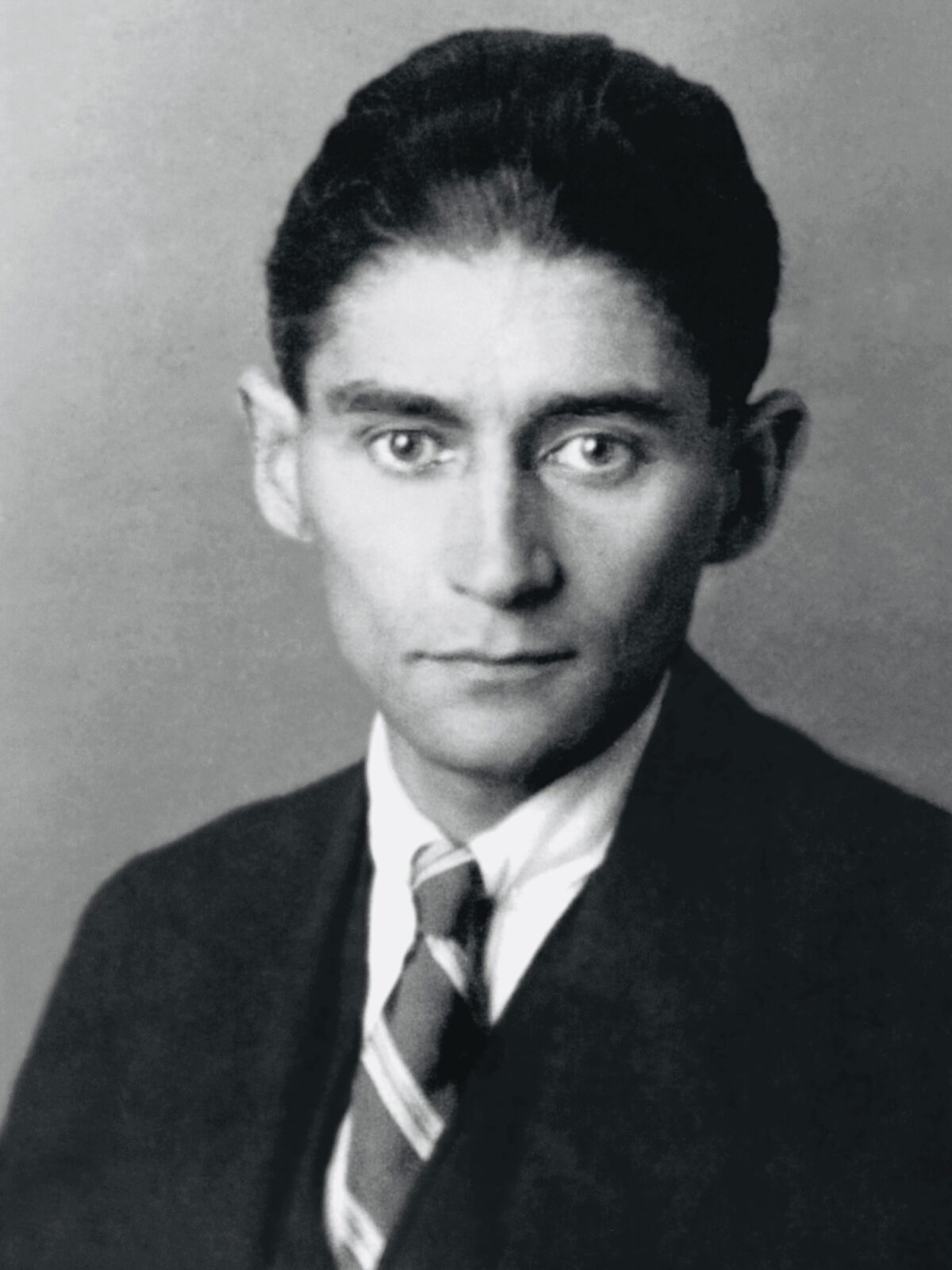Franz Kafka died 100 years ago today in a sanatorium in Kierling, Austria, the victim of laryngeal tuberculosis. He was just 40 when he passed on June 3, 1924. One of the greatest German-language writers of the last century, this Prague-born Czech Jew left behind an eclectic collection of novels, short stories, diaries and notebooks.
Kafka, a six-part Austrian television series directed by David Schalko and scheduled to be available on the ChaiFlicks streaming platform on June 6, explores his life in all its permutations.
A lawyer by training, Kafka was not only a literary figure, but a bureaucrat in Czechoslovakia’s civil service and one of the owners of an asbestos factory. He had love affairs with six different women, but remained a bachelor.
Kafka, which unfolds in German and smatterings of Czech, Yiddish and Hebrew, delves into all these aspects in a stylized fashion. Alternatively serious and light, it often looks and sounds like a play rather than a film in terms of its production values and mood.
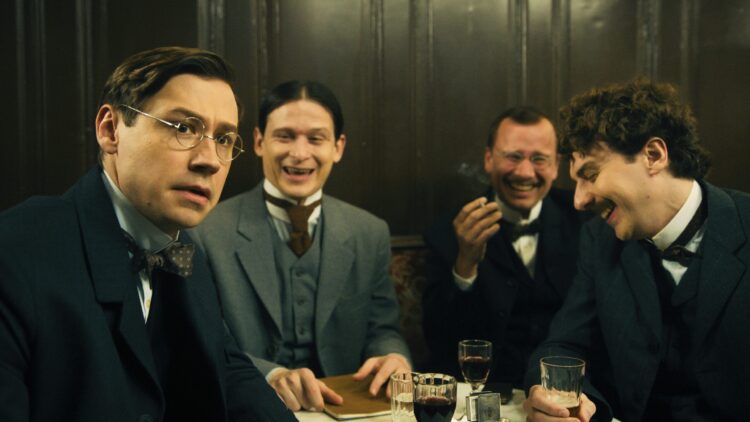
As portrayed by Joel Basman, Kafka is socially awkward and inhibited in his interactions with both sexes. And although he is formidably talented, he is torn by gnawing self-doubts, which may explain why he implored his best friend, Max Brod (David Kross), to burn his manuscripts, a request he fortunately ignored.
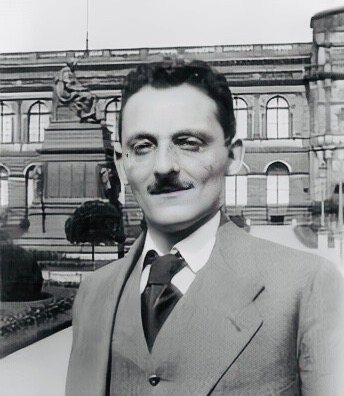
Brod, who would be Kafka’s literary executor, is a recurring character. They met at a university lecture in 1902 and became practically inseparable. Brod, a novelist himself, greatly admired Kafka and was his most ardent champion and promotor.
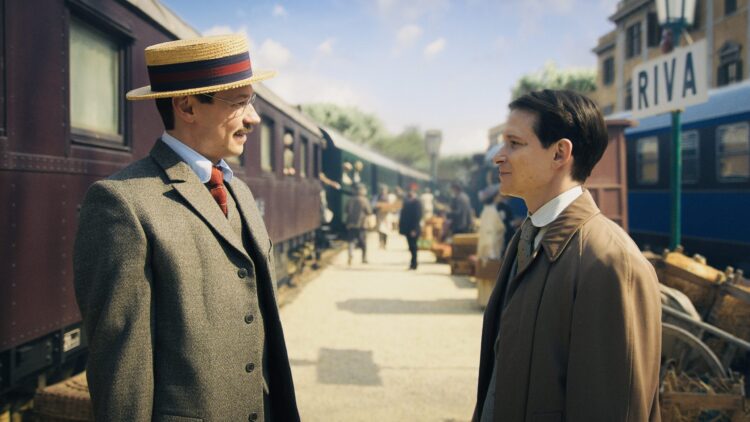
More importantly, as a key scene in Kafka indicates, he saved Kafka’s unpublished works. In 1939, he and his wife left Prague under duress, having packed Kafka’s manuscripts and journals into a valise. When the train conductor examined its contents, he dismissed them as a “suitcase of scribbles” bereft of any value.
In the second episode, Kafka meets Felice Bauer (Lia von Blarer), a Jewish woman from Berlin. They become engaged to be married, but the wedding never takes place. She is a Zionist, and he appears to be one too. But in the following episode, he loses interest in Zionism and wonders what he has in common with Jews.
Kafka’s chewing technique during meals is a source of curiosity and annoyance. His father, Hermann (Nicholas Ofczarek), a well-off shopkeeper, is certainly put off by his odd habit. Hermann has a contentious relationship with his son and does not appreciate his literary ambitions. Which is why he steers Kafka into the asbestos factory venture.
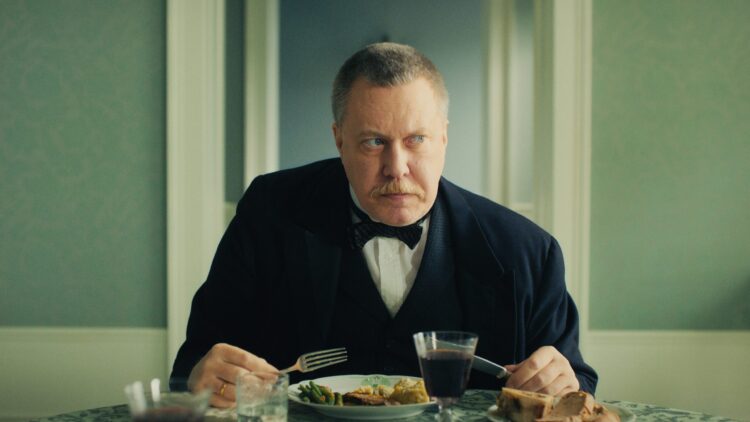
Though it is left unspoken, Hermann is an assimilationist. When Kafka introduces his parents to a Polish Jew, an actor in a Yiddish theater, Hermann is embarrassed and can barely tolerate his presence. Later, he berates Kafka for having brought “vermin” into his house.
There are several references to Kafka’s growing reputation as a published writer. Rainer Maria Rilke, the Austrian poet and novelist, praises one of his short stories. After the publication of The Metamorphosis, Franz Werfel, the Bohemian playwright and novelist, hails Kafka as an “immortal.”
Kafka finds time to write only at night, long after he has finished another day at the Workers’ Accident Insurance Institute in Prague. Kafka is an exemplary civil servant, but his job is “suffocating” him. His goal is to quit and move to Berlin, Germany’s cosmopolitan capital.
World War I breaks out and ruins his plan. He wants to enlist in the army, but his boss regards him as an indispensable worker, and Kafka is granted a deferment.
Kafka’s brief romance with Milena Jesenska (Liv Lisa Fries), his married German-to-Czech translator, takes place in the fifth segment. As they sit in a cafe near Vienna, an Austrian man unleashes an antisemitic tirade, to which Kafka replies sardonically.
By this juncture, Kafka is coughing incessantly, his health definitely on the decline.
In the final episode, Kafka is bed-ridden, both in a sanatorium, where he composes one of his novels, and in Berlin. Tuberculosis has finally felled him. He spends much of his last months with a new love interest, Dora Diamant (Tamara Romera Gines), who acts as his gatekeeper and tends to all his needs. By this point, his illness is so far advanced that he can hardly speak.
Kafka pays ample tribute to a remarkable writer, but it also exposes his weaknesses and shortcomings. Basman, a Swiss actor, delivers a credible performance as an almost tragic figure whose life was cut short by an unyielding disease. The rest of the cast in this vigorous and stimulating series is equally as good.
